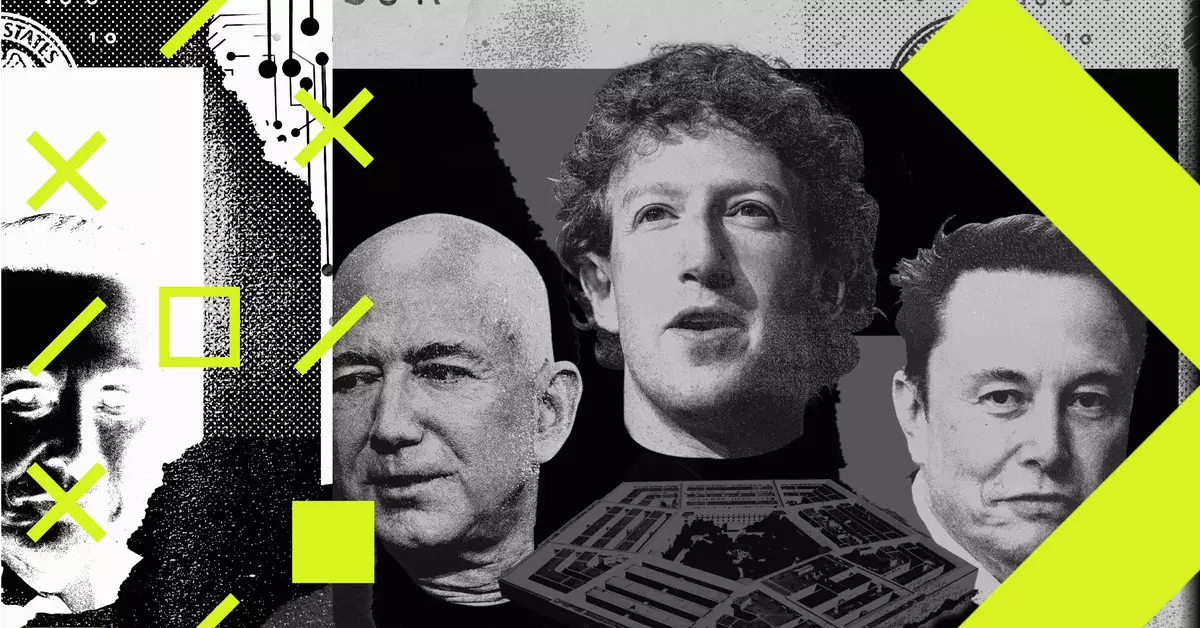The evolving landscape of power dynamics between technology companies and government entities has never been more tumultuous. As the second Trump administration begins, the way we perceive the control of the internet is undergoing a significant transformation. The recent actions of major players like Meta and TikTok illustrate a chaotic mix of geopolitical maneuvering, corporate decisions, and the implications these have on free speech. Examining this intertwining of billionaire influence and governmental authority highlights the precarious position in which we find ourselves, as everyday users of these platforms.
In recent weeks, Meta has altered its content moderation policies in a concerning direction, leading to the allowance of previously restricted slurs and hate speech. This shift signals a willingness on the part of Meta’s leadership to align more closely with certain political narratives. With Mark Zuckerberg’s latest announcement indicating a move away from fact-checking in favor of a more subjective approach to content review, one cannot help but question the motivations behind such strategic pivots. Is this a genuine attempt to foster a more open dialogue, or is it simply a play to appease powerful political allies?
Meanwhile, TikTok finds itself in a fluctuating state of legitimacy, having faced a ban that lingered uncertainly before being partially reversed. The unpredictable nature of its governance points to a larger crisis of confidence in how state power interacts with online platforms. The concept of free speech, once deemed a cornerstone of internet culture, is rapidly being reshaped under the weight of political influence and corporate interests.
The geopolitical struggles surrounding the regulation of tech giants cannot be ignored. As Kate Klonick, an expert in media law, notes, the conflict extends beyond mere corporate policy into broader international affairs. The European Union’s Digital Services Act introduces stringent regulations that have far-reaching implications for how platforms operate. The Trump administration’s willingness to openly challenge these measures in support of American tech firms, notably Zuckerberg’s Meta, suggests a troubling alliance where corporate interests may shape national policy in unprecedented ways.
This kind of “gangster tech regulation,” as it has been termed, underscores a fundamental shift in how power is distributed in the digital age. The reliance on trade negotiations as a means to dictate the terms of free speech raises significant ethical questions. Ultimately, we witness a reformation of social media, showcasing a convergence of state and corporate agendas that risks compromising essential democratic principles.
The First Amendment Crisis
The crux of the issue lies in the fundamental rights guaranteed by the First Amendment. Actions taken by the Trump administration regarding the regulation of platforms like TikTok serve as stark warnings of potential overreach. By potentially positioning the U.S. government as a part-owner of TikTok, the administration invites unprecedented legal challenges regarding freedom of speech. Such measures could create a precedent wherein the state can dictate what constitutes acceptable discourse based on shifting political landscapes—an idea that directly threatens personal liberties.
Moreover, as platforms like Meta embrace divisive content under the guise of free expression, the wider implications for societal discourse become alarming. The notion that community-based moderation can substitute for robust fact-checking speaks volumes about the current ethos at play, where sensationalism and divisiveness flourish while critical discourse deteriorates.
The User Experience: Navigating a New Terrain
For the everyday user, these developments represent more than just abstract political battles—they manifest in tangible changes in how we interact with digital spaces. With social media now a central means of communication and community engagement, the allowance of vitriolic content and the chilling effect of potential governmental controls strain not only dialogue but also trust in these platforms.
As Zuckerberg pivots toward a more “flexible” approach to content moderation, users are faced with an unsettling question: whom can they trust to foster a healthy online environment? The clash of corporate ambition and political strategy essentially reduces user experience to collateral in a broader geopolitical war—this is the crux of the intersection between big tech and state power.
The confluence of technology, politics, and free speech challenges us to rethink the structures overseeing our digital lives. As we stand at the precipice of significant transformation, it is crucial to demand governance that prioritizes ethical considerations over expedient power plays. The implications of these actions are profound, not only for the management of online platforms but for the fundamental tenets of democratic society. The fight for a responsible and fair internet is one that requires vigilance and active participation from all stakeholders, as the future of our online engagements hangs in the balance.


Leave a Reply